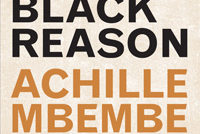

This is part of our special feature The Gender of Power.
Gill Allwood is a professor at Nottingham Trent University (UK), where her research centers on gender and politics. The pithy categorization, “gender and politics,” covers a wide scope of historical and contemporary social and political analysis. From theory, to legislation, from rhetoric to activism, gender and politics are at the heart of human rights debates and movements all over Europe. Progress in the arena of gender equality can feel bittersweet, like cutting a head off the mythical Hydra: momentarily reliving, but short-lived, as two more heads rise to take its place. Though the sweeping tides of nationalist populism and traditionalism are easy to blame, the challenges surrounding gender politics in Europe (and the world) are not so easily explained. Gill, who is a Co-chair for the Council for European Studies’ Gender and Sexuality Research Network, illuminated layers of gray between legislative intention, and the reality of its implementation on the ground. I am delighted and grateful that I had the opportunity to delve more deeply into this discussion with such an articulate and candid guide.
—Lillian Klein for EuropeNow
EuropeNow Under the larger umbrella of Gender Studies, what is your specific expertise?
Gill Allwood I work on gender and politics. This includes women’s participation in mainstream and alternative forms of political activity, as well as the relation between gender and public policy. I have published on feminist movements and theory; political representation; gender-based violence; prostitution policy; refugee women; gender and EU migration, climate change and development policy.
EuropeNow What, in your experience and opinion, is the biggest gender / women’s rights challenge facing the EU today?
Gill Allwood Economic inequality and gender-based violence. They are both cut through by other inequalities, including class, ethnicity and sexuality, but are deeply gendered.
EuropeNow Is this issue being talked about? Is it being given the real estate in government/political talks that its importance deserves? What about media/news attention? In legislation?
Gill Allwood Public awareness of gender-based violence has grown and governments have acted. Bottom-up pressure from feminist activists in the 1970s and 1980s brought this issue to public attention and onto the political agenda. Top-down pressure from international organizations, such as the United Nations and the Council of Europe, encouraged states to act. The Fourth UN Conference on Women in Beijing in 1995 was particularly influential. Gender-based violence remains endemic throughout Europe, however, as demonstrated by the European Agency for Fundamental Rights in its 2014 survey. It is not the lack of legislation that is the problem. What is needed is a change in attitudes and behavior throughout society. The 2011 Council of Europe Convention on Preventing and Combating Violence against Women and Domestic Violence (Istanbul Convention) sees violence against women as both a cause and a consequence of unequal gender relations. The solution, therefore, lies in achieving gender equality. The EU signed the Istanbul Convention on 13 June 2017, joining 44 state signatories. In contrast to earlier agreements on violence against women, the Istanbul Convention is binding and has an independent body responsible for monitoring its implementation. There is clearly a long way to go, but there are some encouraging signs of a growth in political will to bring about change.
Economic inequality has grown in Europe since the crisis of 2008. Both the crisis and the austerity measures that followed have been gendered. Cuts to public services have had a particularly detrimental effect on women as employees (women are more likely to work in the public sector than men) and as service users (women provide more care than men). Care has been pushed back into the private sphere, and this increases the burden on women. Crises of all kinds have the effect of pushing calls for gender equality and women’s rights off the agenda. They are deemed to be a luxury that can only be afforded in times of plenty, but research is increasingly demonstrating that gender equality produces economic benefits as well as being a matter of justice.
EuropeNow Do the EU and individual member countries address issues of gender inequality similarly? Or are there differences in how nations discuss and address the problems (both on the ground, as well as on a governmental stage)?
Gill Allwood There is a variety of approaches to gender inequality within the EU member states. The Nordic and like-minded states are very active within EU decision-making, trying to make policy in all areas promote gender equality. When one of these countries holds the six-month rotating presidency, we see the effects in terms of gendering policy discussions and outputs. These member states try to manage the damaging effects of those more hostile to gender equality, and to sexual and reproductive health and rights (SRHR)—the most divisive gender issue in the EU. The 2013 Report on Sexual and Reproductive Health and Rights (Estrela Report), which called for access to safe and legal abortion, non-discrimination, and the right to access healthcare and sexuality education was rejected by the European Parliament. This is a reversal of the European Parliament’s traditionally more progressive stance, and demonstrates the growing influence of anti-feminist MEPs. Divisions around SRHR influence debates in a wide range of policy areas, from health and education, to enlargement of the European Union and international development.
EuropeNow How has the systems’ response to gender inequality, specifically violence against women, changed in the last 10-15 years? Have there been systematic changes implemented? Attempted? How have they been received?
Gill Allwood Cuts to services have had a very detrimental effect on gender equality and violence against women. Health, education, and social services have been very badly hit. This has meant that, even where appropriate legislation exists, it is not being implemented on the ground. Charities have seen their funding cut at a time when demand for their services is increasing. Despite these adverse conditions, there are some excellent examples of programs and projects at the international, national, and local level, which are innovative and effective. Committed groups and individuals continue to work to achieve gender equality and to eradicate gender-based violence. Civil society organizations are often at the forefront of these efforts, and there are examples of multi-agency networks bringing together local authorities, the police, the judiciary, medical practitioners, educators, gender activists, and service providers to reduce violence and improve gender relations.
EuropeNow Has Brexit, and the tide of populism sweeping Europe (and for that matter, the US manifested recently with the Trump Presidency), had an effect on the passage, resources, or implementation of gender equality legislation?
Gill Allwood The rise of populism is influencing debates within the EU and making it harder for gender equality legislation to be passed. This can be seen in the European Parliament, where the increase in MEPs from populist parties is having an impact on the work of the Parliament and on the decisions that it makes. There is growing evidence of anti-feminist backlash in many European countries, and rights that were thought to be gained are increasingly under threat.
The most visible and immediate impact of Brexit in the UK has been the increase in racism, as well as racist and Islamophobic violence. This has produced serious and lasting damage to the country and to everyone who lives in it. In the longer term, leaving the EU is likely to erode gender equality and anti-discrimination legislation, as well as human rights legislation more broadly.
Feminist and gender scholars have not been uncritical of the EU. They have highlighted the gap between its rhetorical commitment to gender equality and the damaging gendered effects of some of its policies. They have called on the EU to improve its gender equality policy, to mainstream gender equality properly into all of its other policies, and to take firm action on issues such as gender-based violence. At the same time, however, we must recognize that leaving the EU will not strengthen the UK’s gender equality legislation.
EuropeNow You are Co-Chair of CES’ Gender and Sexuality Research Network—what does the facilitation of that network look like? Is there a piece of work (or more) that has come out of the network that stands out as particularly excellent and/or important?
Gill Allwood I co-Chair the network with Michael Stambolis, and together we manage the listserv and Facebook group, as well as organize the network’s activities at the CES annual conference. The network provides the opportunity for its members to exchange ideas, find partners for their projects, and form panels for the conference. Isabelle Engeli and David Paternotte created the Research Network several years ago in an effort to capitalize on all of the strong work in gender and sexuality work that people were presenting at the CES conferences. They wanted to capitalize on that growing interest to create a community and platform for pushing the field forward. Thanks to their hard work, the network has grown significantly and our members are very active. One of the highlights of previous years was a semi-plenary roundtable at the 2015 Paris conference on mobilizations against gender equality that David and Isabelle organized. This year, we were able to propose nine panels to the conference, along with a separate pre-conference workshop on Women in Society, organized by Mona Morgan-Collins and Carissa Tudor. We will also be holding a semi-plenary roundtable on Gender, Politics and Europe through a Scottish Lens, with invited speakers from Scottish politics and activism. Finally, we have just launched two new prizes: best article published by a member of the network and best paper presented by a PhD student/early career researcher. We are very much looking forward to CES Glasgow, and are already making plans for Chicago in 2018.
Gill Allwood is the Subject Leader for European Studies and Program Leader for the MA by Research in European Studies. Her research interests center on gender and politics and have developed from the detailed analysis of French feminist theory and activism, which was the subject of her thesis and first book French Feminisms: Gender and Violence in Contemporary Theory (UCL 1998), to broader investigations of gender and politics in France, in the UK, and in the European Union.
Lillian Klein is the programs coordinator at the Council for European Studies. She holds a B.A. in literature with a minor in religious studies from Barnard College, as well as an M.F.A. in fiction from Columbia University. Previously, Lillian assisted in the Memberships, Programs, and Awards Department at PEN America Center. She also served as a teaching fellow at Paris American Academy’s writing program for two consecutive summers.
Photo: Gill Allwood, Private




